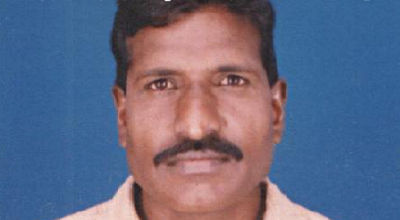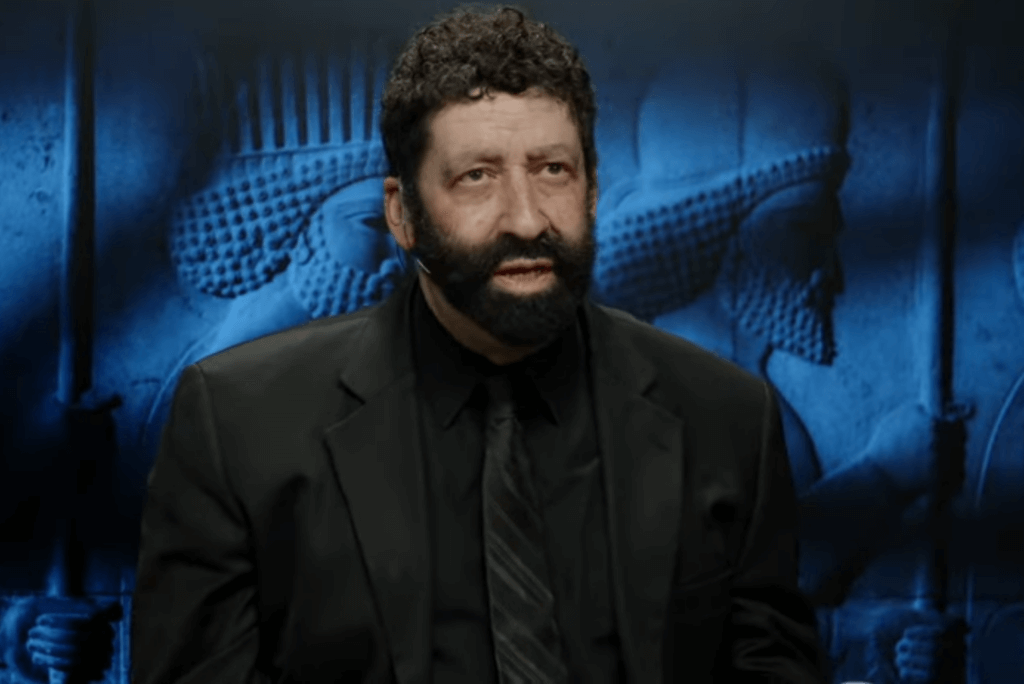A Pakistan court last month surprised all involved when it dismissed charges of blasphemy against a Christian man accused of insulting Islam.
The Jan. 28 ruling by a trial court in Punjab province surprised defendant Barkat Masih, his attorney and religious-rights advocates. It came two months after a different judge threw out similar charges against a teen-aged girl that drew worldwide criticism of Pakistan’s anti-blasphemy laws.
“I didn’t think God would rescue me from such an impossible situation,” Masih told World Watch Monitor, “but my miraculous rescue has strengthened my faith in Him.”
Masih, a 56-year-old high school custodian and a Hindu convert to Christianity, said his trouble started in September 2011. He was passing the time in an old Hindu shrine in his native village of Khairpur Tamewali, on two acres of land he said has been in his family for generations. The shrine pre-dates the 1947 partition of Pakistan from India, he said.
“Many people, belonging to all communities, gather there every Thursday to listen to Qawwalis (Islamic hymns) and to socialize. We have been caretakers of the shrine for three generations,” Masih told World Watch Monitor from Bahawalpur, a district in the heart of Punjab province known as a breeding ground for radical and jihadi outfits.
Two frequent visitors to the shrine, whom Masih identified as Muhammad Saleem and Muhammad Shoaib, arrived.
“They deliberately started an altercation with me, alleging that I had spoken ill of the Muslim prophet during a conversation with them,” he said. “I couldn’t make out what they were saying. They accused me of indulging in black magic even though they knew I couldn’t read or write. The other people present there intervened in the situation and forced the two men to leave.”
A few days later, on Oct. 1, police arrested Masih, based on a complaint filed by Saleem and Shoaib. He was charged with blasphemy under Section 295-C of the Pakistan Penal Code, which outlaws using derogatory words against the prophet Muhammad. Penalties can include life imprisonment or death.
Masih said the police moved him to the Bahawalpur District Jail where he was kept in a separate barrack along with four other accused, all Muslims charged under the blasphemy laws.
He remained behind bars for the next 16 months. His wife and five children—four boys and a girl—remained in the village.
“The villagers took out several demonstrations when word got out of my arrest,” Masih said. “Luckily, none of my family members were harmed by them.
Masih’s attorney, Allah Rakha, told World Watch Monitor the judge assigned to the case wanted nothing to do with it, “as it would put his life in danger.” Rakha, who said he received threats himself, got the case transferred to a new judge, who approved Rakha’s request for a police investigation of the charges against Masih.
Rakha said Superintendent of Police Investigation Shiraz Upal visited the village, where “some 25 people vouched for Masih’s innocence and submitted affidavits in his favor. They told the police officer that Saleem and Shoaib wanted to grab Masih’s land and had implicated him in a false case.”
With the police report as evidence, Rakha asked the judge to dismiss the charge. Instead, the judge gave prosecutors an opportunity to present their case Jan. 28.
“Saleem’s lawyer appeared in court but he could not produce any evidence in support of their claim,” Rakha said.
At that point, Additional Sessions Judge Chaudhry Jamil Ahmad threw out the case and ordered that Masih be set free.
“I was speechless for some time,” Rakha said. The lawyers for the accusers, he said, began shouting at the judge and staff, who quickly left the courtroom.
“This is a remarkable case in which a trial court judge has released a person charged with blasphemy. In my several years of legal practice I have never seen a trial judge showing guts in such a sensitive matter. Almost in all blasphemy cases, the trial court judges pass on the buck to higher courts by convicting the accused. This is probably the first time a blasphemy accused person has been spared the ordeal of waiting for his release without going through appeals and bail applications,” he said.
Rakha wasn’t the only one surprised.
“It’s not very often that you hear about a blasphemy accused being set free by a trial court. And the accused being a Christian makes this particular case more exceptional,” Farrukh Harrison, director of World Vision in Progress, a Pakistan-based religious-rights organization that funded Masih’s legal defense, told World Watch Monitor.
Some government officials drew a link from the case of Barkat Masih to the much more widely covered case of Rimsha Masih, an Islamabad girl arrested in August on charges that she burned some pages of an Islamic text. The courts threw out the case when police provided evidence the burned pages were planted on the girl by a local Imam.
“Rimsha Masih’s case is a clear example of how the blasphemy laws are misused by people,” Peter Jacob, of the National Commission for Justice and Peace, told World Watch Monitor. “Even in Barkat Masih’s case, it’s quite clear that the complainants wanted to grab his property, therefore they charged him with an allegation quite a few people in Pakistan dare to question. The government and judiciary should review all blasphemy cases because most of those accused are victims of jealousy and prejudice.”
Jacob said his organization has documented about 1,170 blasphemy cases registered in Pakistan from 1987 through 2012. He could not provide the exact number of people charged in those cases.
A study by the Human Rights Commission of Pakistan concluded at least 647 people have been charged with blasphemy during the past 20 years. Half of those charged were non-Muslims, and 20 were killed before their case got to trial.
Napolean Qayyum, a member of the Pakistan People’s Party Minorities Wing, told the newspaper Pakistan Today that the Rimsha case opened the country’s eyes to abuse of its blasphemy laws. “It is encouraging that the courts have now found the courage to analyze such cases on merit,” he said.
Rakha told World Watch Monitor the Rimsha case may be a sign that the tide has begun to turn against the blasphemy laws, though they remain widely popular among voters.
“The Islamabad High Court’s judgment in the Rimsha Masih case has set a precedent for judges and the police,” he said. “The IHC has clearly admitted the misuse of the blasphemy laws to settle personal vendettas and has called upon the investigating authorities to ensure fair probe into the serious allegations. Ninety-nine-point-nine percent of all blasphemy cases are false, yet scores of people are killed or are forced to live in hiding even after they are set free by the higher courts. But judicial verdicts such as these are very encouraging and one may hope for justice to prevail after all.”
As for Barkat Masih, he is free but likely a target, his advocates said.
“The police can only ensure safety of the citizens for so long,” Harrison told Pakistan Today. “Masih and his family will have to relocate and start over afresh because his life is under threat at his current hometown.”
Even Ahmad, the judge who threw out the case, understands just how dangerous it remains to challenge Pakistan’s deep-rooted sensitivity about criticism of Islam, said Rakha.
“The judge has now left on indefinite leave,” he said.
See an error in this article?
To contact us or to submit an article






















